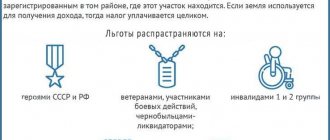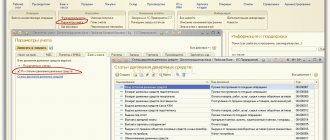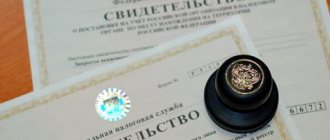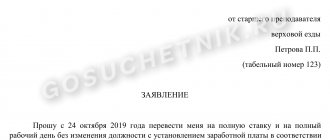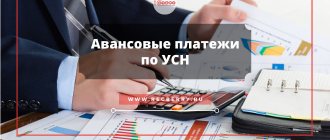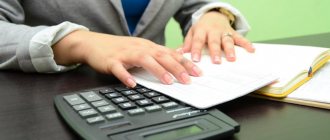Individual entrepreneurs are most often exempt from VAT. But if a businessman uses the general taxation system, acts as a tax agent or issues invoices highlighting this tax, then he must calculate value added tax and fill out the documents correctly. You can learn how to do this from this article.
The question of who pays VAT is answered by paragraph 1 of Article 168 of the Tax Code of the Russian Federation, according to which any entrepreneur or organization is obliged, when selling goods (work, services), in addition to the price (tariff) of the goods (work, services) sold, to present for payment to the buyer these goods (works, services) the corresponding amount of value added tax. Thus, payers of this tax are both organizations and individual entrepreneurs (Article 143 of the Tax Code of the Russian Federation).
However, if an individual entrepreneur applies a preferential tax regime: simplified tax system, UTII or PSN, then he does not have to pay VAT. In addition, an individual entrepreneur may be exempt from fulfilling the duties of a taxpayer under Article 145 of the Tax Code of the Russian Federation. However, an entrepreneur in special regimes can act as a tax agent. Such situations are directly regulated by tax legislation. In addition, VAT is charged to all persons who move goods across the Russian state border. This VAT is called customs VAT, and even those individual entrepreneurs who apply special tax regimes are required to pay it.
Individual entrepreneurs pay VAT at their place of residence, since they register with the tax authorities there. The timing and procedure for tax payment, as well as the submission of tax returns for individual entrepreneurs, do not have any special features compared to other payers.
Does the individual entrepreneur pay VAT?
Chapter 21 of the Tax Code of the Russian Federation contains the wording of the VAT tax. The taxation system affects whether an individual entrepreneur pays VAT or not. A businessman decides for himself which system to work on so that his business brings maximum income.
Art. 143 of the Tax Code of the Russian Federation determines those who must pay this tax. These include: organizations, individual entrepreneurs and those who are payers of this tax.
Is it possible for an individual entrepreneur to work with VAT?
Important! To work with some counterparties, it is necessary to conduct business with VAT. This is especially true for large foreign companies.
If you open an individual entrepreneur on a common system, then payment of VAT is required.
In the following systems, the tax in question is not paid, except for certain exceptions:
- UTII - can only be applied to certain types of activities. Its calculation is carried out according to a certain formula;
- The simplified tax system is the most popular system among entrepreneurs;
- PSN - involves payment for a patent. Can be used for specific types of activities;
- Unified agricultural tax - used only by agricultural organizations.
How to calculate the amount to be paid
Option one is to calculate VAT on the amount. Using mathematical calculations, the percentage is calculated using the formula:
VAT = NB * Nst/100, where NB is the tax base or amount excluding tax, Nst is the tax rate of 10% or 20%.
The second option is VAT calculation including. To do this, the amount of tax is allocated from the total amount. If the rate is 20%, then use the following formula:
VAT = C/1.2 * 0.2.
If the tax is 10%, then the procedure is as follows:
VAT = C/1.10 * 0.10.
C is the total amount including tax.
Pros and cons of working with VAT
Some entrepreneurs believe that operating as an individual entrepreneur with VAT is not as profitable as operating under the simplified tax system. They attribute this to the fact that there is no need to pay this tax and keep records of it. Despite this, working with this tax has both advantages and disadvantages.
Individual entrepreneur - what is it, features of activity
The disadvantages of individual entrepreneurs with VAT are:
- obligation to pay this tax. This is the biggest drawback that scares many entrepreneurs;
- VAT is a federal tax. This leads to the fact that a businessman needs to maintain complete accounting records.
The following features follow from this:
- the need for thorough vetting of suppliers;
- carrying out reconciliations of all primary documentation containing the tax in question;
- maintenance of tax registers is required;
- the need to prepare sales and purchase books;
- required to report to the tax authorities;
- the accounting must contain one more object for verification;
- the authorities of the Federal Tax Service are paying closer attention.
When an individual entrepreneur works according to the simplified tax system “Income minus expenses”, then in the case of purchasing goods from suppliers who pay VAT, it provides the opportunity to take into account the purchased VAT in its expenses. If an individual entrepreneur uses the simplified tax system “Income,” then this option is not available.
Note! Individual entrepreneurs who work with VAT are checked by more qualified tax specialists. This tax contains a lot of subtleties, therefore, if it is revealed that something is calculated incorrectly, this will lead to significant amounts of fines and penalties.
Among the advantages of working with the tax in question:
- large enterprises prefer to interact only with those counterparties who are VAT payers. Those individual entrepreneurs who do not use it will most likely receive a refusal from the client or supplier. This leads to the fact that a businessman needs to think about how to increase his competitiveness;
- The main advantage of this tax is the possibility of making a deduction for purchased goods or services. VAT is refunded in the amount that was paid in the cost of the goods. This may allow you to save a good amount. However, if a product was sold to a buyer under the general tax regime without tax, then it is not subject to reimbursement.
Tax payment rules for individual entrepreneurs
Can an individual entrepreneur work without a cash register and in what cases is this allowed?
To determine how an individual entrepreneur can work with VAT, you need to know how this tax is calculated and paid. There are three options for VAT rates in the code: 0%, 10%, 20%. The rate is affected by the type of product and service. The VAT return must be submitted no later than the 20th day of the month following the previous tax period. A sample declaration form can be downloaded from the Internet. This tax must be paid every month.
Important! If a businessman’s revenue for one quarter exceeds 1 million rubles*, then he is required to submit reports every month.
It is also possible to use differentiated rates: 20/120, 10/110, 16.67. They are influenced by the type of operations performed.
The use of the 0% rate occurs in the following situations:
- goods are sold for export abroad of Russia;
- international cargo transportation across borders;
- procedures that are carried out by structures associated with the transportation and refining of oil and its products.
The full list of these goods is determined by Art. 164.1 Tax Code of the Russian Federation. Some regions have special requirements. For example, in the Republic of Crimea there is a zero rate for air travel until 2025.
The following types of goods and services are subject to a 10% rate:
- food products: meat, eggs, fish, milk, cereals. Art. 164.2.1 of the Tax Code of the Russian Federation includes a complete list;
- children's goods: shoes, clothing, furniture, toys, etc. The full list includes Art. 146.2.2 Tax Code of the Russian Federation;
- printed and book publications. An exception is literature with erotic content;
- medicines and medical products.
The use of differentiated rates 20/120 and 10/110 is used in cases where VAT is included in the tax base. Art. 164 of the Tax Code of the Russian Federation describes the requirements for the application of these rates. These values are used in all procedures related to advance payments. Also, these rates are used when it is necessary to determine VAT from the total payment amount.
The rate of 16.67% has a special purpose. It is only used in the following situations:
- foreign counterparties provide services electronically to individuals;
- the organization is implemented as a property complex.
Note! More detailed information about this rate can be obtained from Art. 158 and art. 174.2 Tax Code of the Russian Federation.
In remaining situations, a rate of 20% applies.
To determine the amount of VAT that an individual entrepreneur needs to add to the budget, you need:
- Calculate accrued VAT.
- Subtract tax deductions from the amount received.
The difference will be the same amount that needs to be transferred to the budget. To determine the amount of VAT, it is worth distinguishing between input and output VAT. Incoming is the amount of VAT that is paid by the individual entrepreneur and is included in the cost of goods and services received and purchased from suppliers. Outgoing is also the total amount that is included in the cost of goods and services received, but sold by the businessman himself.
In a situation where a supplier issues an invoice with VAT, it means that he works for OSNO and sells his goods with VAT. This invoice must be paid along with the tax. If this is not done, the supplier may require a refund or payment of this tax.
VAT tax calculation
Reporting
Starting from 2015, you can submit your VAT return exclusively in electronic form . This applies to both organizations and individual entrepreneurs. You can submit a declaration through the program for interaction with the Federal Tax Service. A report for each quarter is submitted no later than the 25th of the following month.
You should not neglect this responsibility, since the Tax Code provides for fines for this. Moreover, if the declaration is not received by the tax authority within 10 days after the deadline, the entrepreneur’s account may be blocked.
About penalties for failure to submit a declaration:
Is it possible to be with and without VAT at the same time?
Can an individual entrepreneur issue VAT invoices using the simplified tax system - sample filling
There are cases that show when an individual entrepreneur can conduct his activities simultaneously on a special system with and without VAT. These include:
- The individual entrepreneur leases municipal property;
- An individual entrepreneur buys goods from a foreign organization;
- the work is carried out under a simple partnership agreement;
- trust management of property is carried out;
- a VAT invoice was issued by mistake;
- implementation of import transactions.
Who is exempt from VAT
In accordance with Art. 145 of the Tax Code of the Russian Federation, small enterprises and individual entrepreneurs can be exempt from paying VAT. Also, VAT is not paid by taxpayers who work under special regimes, as well as those who sell certain types of goods and services.
Those businessmen whose revenue for the last three months does not exceed 2 million rubles may be exempt from paying VAT. This benefit does not apply to those who sell excisable goods and those who import goods into the territory of the Russian Federation. The benefit can be used for 12 months. Then it is possible to extend it if conditions allow it.
Note! To be exempt from paying VAT, you can switch to one of the types of special regimes. They are indicated in paragraph 2 of Art. 18 Tax Code of the Russian Federation: Unified Agricultural Tax, USN, UTII, PSN.
However, for some operations, VAT exemption does not apply to special systems:
- goods are imported into Russia;
- fulfills the duties of a tax agent;
- operations are carried out on the basis of a simple partnership agreement.
Note! To switch to a special tax system, you must meet certain requirements.
The Tax Code also provides a list of certain types of transactions for which exemption from the tax in question occurs:
- sale of goods and services that are socially significant for society;
- provision of services in the field of culture and art;
- financial services;
- products and services sold by a public organization of disabled people, etc.
In Art. 149 of the Tax Code contains a complete list of these types of services.
The VAT exemption can be waived. However, the following should be taken into account:
- when the exemption is associated with low turnover, it is possible to abandon use no earlier than after a year;
- when using special taxation systems, waiver of exemption is impossible;
- refusal of exemption is possible only for those operations described in Art. 149 of the Tax Code of the Russian Federation. The refusal can be issued for no less than 1 year.
The use of VAT exemption is influenced by a number of factors. They are related to the status of the person, the type of his activity and the scale of the business. Exemption can be granted to individual entrepreneurs as a whole, or for certain types of products or services.
In some cases, it is more profitable to refuse to apply the benefit. In this situation, all financial indicators should be taken into account.
Who is exempt from VAT
What is entrepreneurial activity
The concept of “entrepreneurship” is enshrined in the Civil Code. Here are listed all the signs on the basis of which it is possible to determine whether the activity being carried out is a business.
The main defining feature is the focus on making a profit. Persons with individual entrepreneur status can receive profit from the sale of goods when using property. Additionally, income can be from rental property or for services provided by the entrepreneur under a contract.
At the same time, for the tax authorities it does not matter what status the recipient of the profit is in - individual entrepreneur or organization. Any person who systematically receives profit from the listed activities is a taxpayer.
In what cases is VAT beneficial?
In some situations, it is more profitable to charge tax on value on a general basis. This is due to the fact that if this tax is not paid, not only the outgoing tax, but also the incoming tax is not calculated. If the accrued tax is regularly exceeded, it will be more profitable to use the tax in question.
Note! Also, those transactions that are not taxed under Art. 149 of the Tax Code of the Russian Federation occupy a small share of the total turnover, then the costs of separate accounting may exceed the benefits of saving on this tax.
